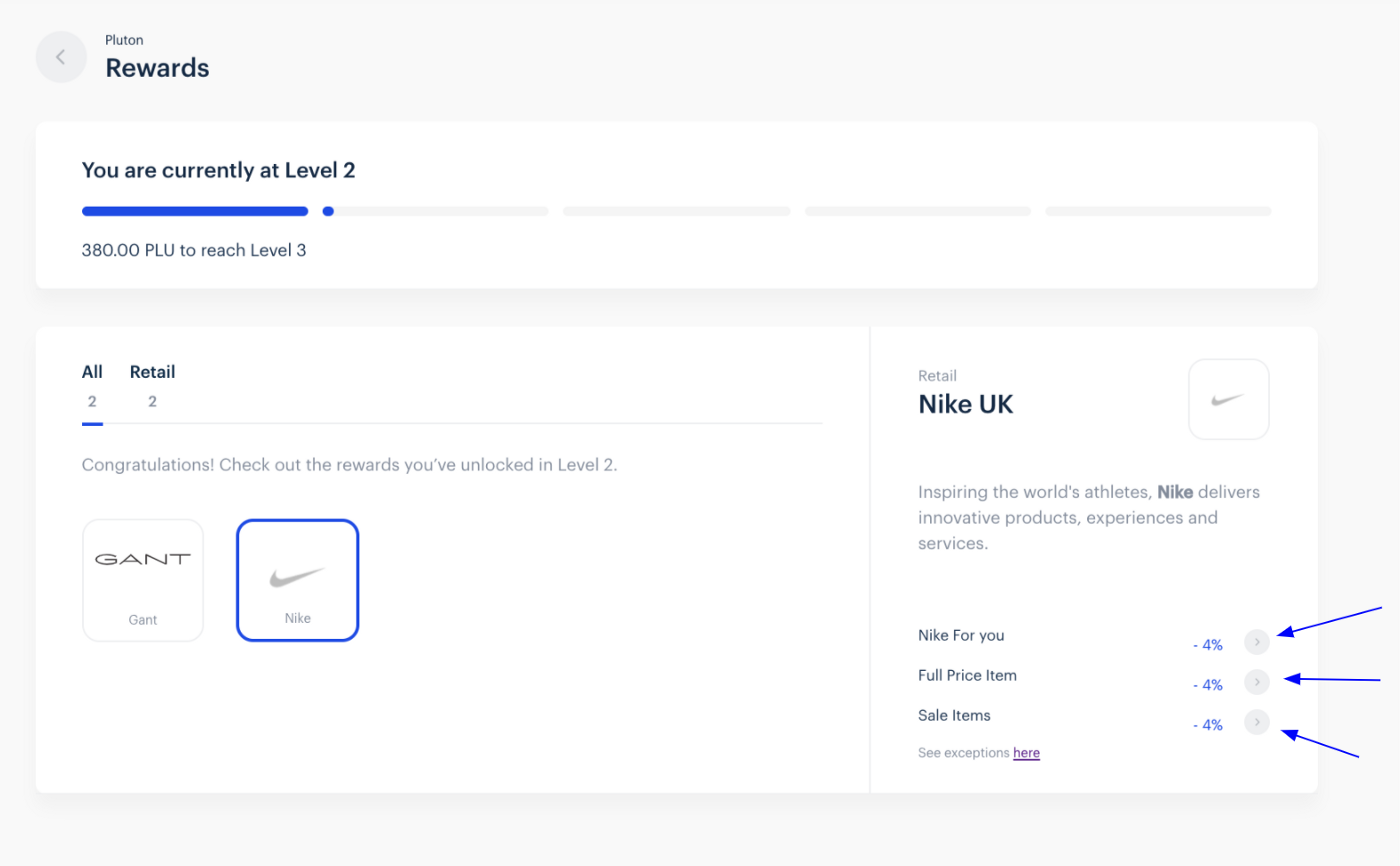Nike partners with Blockchain supply chain startup Pluton
As of recent valuations made in 2020, the Nike brand is valued at approximately US$34.8 billion, which comes after two billion USD in growth since 2019. The major American enterprise recently partnered with a London-based cryptographic asset start-up called Plutus.
The crypto venture has signed similar deals with AirBNB and Skyscanner. Discussing the new partnerships, Plutus CEO and founder Danial Daychopan stated “Plutus was approved as an affiliate partner for both Airbnb and Skyscanner at the start of the year, however all programs in the travel category have been temporarily paused by the company due to travel restrictions caused by COVID-19. Both of these partners were included to offer cash back to qualified Plutus members.”
Using the start-up’s native app, European Nike customers can earn 3% in crypto and 9% in cash back from purchases. Additionally, Nike shoe owners can earn further rewards by interacting with the Plutus app.

This will not be Nike’s first foray into blockchain-based supply chain solutions. Earlier this year the organization partnered with RFID labs of Auburn University). RFID, or Radio-frequency identification, is a technology that uses electromagnetic fields to automatically identify and track tags attached to objects.
RFID labs created a pilot program to test new versions of blockchain technology that may act as tools to exchange information between suppliers, retailers, and other supply chain stakeholders. The project was dubbed the chain integration project, or “CHIP.”
CHIP uses an automated process of leveraging serialized data between trading partners using automated data collection methodology that eliminates the need for human audits and counting. The successfully tested CHIP proof-of-concept has proven that suppliers and retailers can exchange serialized data using a blockchain to increase visibility into product flow.
The results of the blockchain-based RFID solutions trialed by Nike, and a number of other major international companies including Macy’s and IBM, were published as part of a proof-of-concept Whitepaper released in March of this year.
The CHIP whitepaper described a number of test cases, including ones run by Nike and one run by the department store Macy’s. CHIP integrated retailers ran blockchain-based Hyperledger Fabric nodes on a small portion of their otherwise enormous global supply chains.
Hyperledger Fabric is an interchangeable blockchain architecture framework that acts as a base for developing blockchain-based products, solutions, and applications. It uses plug-and-play components that are designed for use in private enterprises. The distributed ledger framework was launched by the Linux Foundation in December 2015.
Hyperledger uses a consensus-as-a-service mechanism, wish is an alternative to Proof-of-work or Proof-of-Stake, where the majority of the participants in a network need to agree about the state of a ledger on the basis of a previously agreed set of immutable factors, rules, and criteria.
Transactions conducted on Hyperledger Fabric must be endorsed by the peers in the network. They must confirm that the proposal is adequate, has not been used in the past, and that the signature and whoever made the submission agent is authorized to sign and submit the request.
Transactions are executed only when this process of validation is successful and confirmed by authorized peer signatures.
Alan Gulley, a blockchain research fellow at RFID labs, described the pilot blockchain supply chain solution built by his team for Nike. Every box of Nike shoes comes with an RFID tag that helps the athletics giant track its sprawling inventory. However, different retailers tags store data differently and there’s little to no data interoperability.
This gave RFID Labs two opportunities to help Nike. Firstly, in giving international Nike retailers a common language, and secondly, build them a platform to communicate with each other more easily.
Gulley says the language aspect of the project took up about 70 percent of the researchers’ time. His team built a “translator tool” that reworked different data streams into the EPCIS standard developed by Belgian non-profit GS1.
EPCIS is a standard business language tool that enables trading partners to share information about the physical movement and status of products as they travel throughout the supply chain. from business to business, and then eventually to consumers.
It is used to help supply chain stakeholders answer “what, where, when and why” questions, and meet consumer and regulatory demands for accurate and detailed product information.
OhNoCrypto
via https://www.ohnocrypto.com
Aditya Das, Khareem Sudlow
